By AmyI was lucky enough to meet Sarah earlier this year and discover that she is not only managing motherhood, home, new business, and a blog but also an entire homestead, garden, and herd of goats! Did I also mention that she's pregnant and expecting her second child next month? I have no idea how she and her husband manage it all, but I am fascinated by the concept of homesteading and am simply in love with the goat milk products that she and her family of goats make at Amalthea Ridge. (My favorite: the Ginger Lime Body Souffle...so delicious smelling and light that I wish I could eat it!) To learn more about raising kids on a homestead read my interview with Sarah here and visit her website at www.amalthearidge.com. Can you tell us a little about you and your family including where you are from, what brought you to Virginia, and any other occupations (in addition to homesteading and parenting)? I grew up among the corn and wheat fields in north-west Ohio, and transitioned to the DC area for graduate school in biochemistry. I ended up meeting my husband out here, so I stayed. I’ve worked at several pharmaceutical companies while pursing my degree. Now I focus my chemistry background toward developing healthy, natural goat milk products. What inspired you to move beyond a backyard garden and establish a working homestead? When I was little, we always had a giant garden. I remember summer being amazing because of all the great foods that came out of that garden, like giant strawberries and delicious sweet corn. I really wanted to pass that legacy on to my own children so we moved to a few acres in Great Falls. I’ve been a big proponent of buying natural & local products for a long time, and now that I have the opportunity, I decided growing our little garden into a homestead was about as natural and local as I could get! Eggs from Amalthea Ridge: Black Spanish Turkey Hen Eggs (spotted) and Chicken Eggs Can you describe Amalthea Ridge, including its size, general lay out, what you grow and how many animals you have? We have three, heavily wooded and rocky acres that we have slowly been carving into a homestead. Even though we live in Northern Virginia, you would have no idea how close we are to civilization when you stand in our backyard. Our house is situated at the top of a very steep hill, and working with the landscape has been the hardest part! We have a terraced vegetable garden in the side yard along with a raised bed which is being dedicated to strawberries this year. Also in the yard is a small composter for all our scraps and a lean-to greenhouse that keeps us in fresh salads and herbs all winter long. The soil here is not too great, so one of our big projects has been improving the soil for better produce. Right now the tomatoes, cucumbers, hardy squash, and pole beans are winners. Brassicas never grow. This year we’re trying out the proverbial virginia peanut and broccoli romanesco. I’ll be blogging about those experiences along the way. We are working on the addition of a fruit orchard, and currently have grapes, blueberries, currents and raspberries planted near the garden. Our goat house is off the side yard in the woods, and is still a work in progress. The goats have two fenced areas that we hope to expand over the course of the year. We keep alpine dairy goats and have six does, one buck, and six kids currently. Twin kids born 5/30/12 at Amalthea Ridge Our permanent chicken & turkey coop with attached run is up the hill from the goat house and situated so we have a good view of it in case of marauding predators. We have three Black Spanish turkeys and a variety of heritage breed chickens. What kinds of products do you make and where did you learn your craft? Goat milk soaps and lotions are my specialty! They are amazing for the skin. I had extra milk and my mom suggested using it to make soap. I was hooked and have since formulated all my products to support and nourish the skin naturally without all the extra harmful ‘junk’ you get in commercial brands. Anyone who has taken general chemistry or organic chemistry has likely done a saponification experiment and made their own soap. As a biochemist, I’m particularly well suited to making soap and lotion. I’ve learned through years of study and practice how to optimize experiments to reach my goal, i.e. a great final product. Working with fatty acids and emulsions is an integral part of my training and comes in very handy when creating formulations and managing the hands-on side of the business. 'Udderly Tipsy' Goat Milk & Beer Soap Where does the name Amalthea Ridge come from? I originally bought my goats to feed my young daughter, so I wanted to name our company something that would convey the true purpose of my animals (and the fact that we live on top of a really crazy hill) . Depending on what source you read, Amalthea is a figure in greek mythology sometimes portrayed as a goat. She was Zeus’s nurse-maid, providing him milk as an infant. It seemed like the perfect fit for our new venture! It’s challenging just to run a normal household. How much harder is it to run a homestead? What kinds of daily chores do you have to do to keep everything running? Do you and your husband hire any additional help to get it all done? At this point we do all the work ourselves with periodic help from my family, and it is hard. I’ve never had such a tough time keeping up with laundry and dishes in my life! There are certainly days we just don’t want to go outside to feed the goats because sleeping in sounds so nice since the baby was up all night, or it is pouring down rain, or sub-zero wind-chill. But, we go anyway. I do most of the animal care, planting and harvesting. My husband does the brunt of the physical labor like building or turning over the gardens. Chicken Coop Chickens are fairly easy to keep. It is simply a matter of refilling water and collecting eggs everyday and periodically filling their grain. The daily care and feeding of the goats is much more time consuming, particularly during the 10 months of milking since not only do you add milking, but also the sanitation and pasteurization processing. In the summer, we are out in the garden weeding, watering, harvesting, and then preserving our produce. The time adds up and sometimes other things are put off because of it. It is very hard to take a vacation! What have been the benefits of raising a child on a homestead? Homesteading with a child is great because it is such an active venture, and young children are nothing if not active! They help plant, they pick their own veggies (which they will then actually eat because they grew it), they see baby animals born and grow, and they love to help and have their own jobs. It teaches responsibility because, just as for me, some days it can be hard to get out there and do the job. It also teaches resourcefulness. We try to make as much from scratch as we can, and they learn a lot from watching that. They assimilate lots of science and biology just by experiencing it and asking questions about why we do certain things or how something happens. What has been your proudest achievement in homesteading? The birth of our first kid (and I mean goat kid.) It was one of those ‘Wow, we’re really doing this’ kind of moments. He’s still my favorite goat. Have you had any funny mishaps? I don’t know that we’ve had anything I would categorize as a mishap exactly. We have a lot of ‘I never thought I’d do that’ kinds of moments. For example, this spring we had to pick up some goats in Maryland. My daughter woke up from a nap and was in full crisis mode, so we needed an emergency stop. We were right by National Harbor and my husband gave me a sideways ‘should we or shouldn’t we’ look. We ended up taking the goats, in their box on our trailer, to National Harbor. When we came back to the trailer they were surrounded by Harley motorcycles. We laughed all the way home that only our goats would have such an adventure, and how surprised the people on the Harleys probably where when they cut their engines and were greeted by goat maah’s. At least they had a nice view of the Potomac for awhile! I’ll bet people are surprised when they learn how much agriculture is possible in the average backyard. What types of fruits/vegetables are easiest for beginner gardeners to cultivate? If you have a sunny spot in your yard, patio, or even a window box, you can grow tons of things! If your space is limited, look for bush varieties of your favorite vegetables. Tomatoes, cucumbers, and zucchini tend to be easy to grow and come in all sorts of varieties. I recently bought some bush watermelon seeds since my family loves them, but we don’t have space for the usual giant watermelon vines. Particularly for tomatoes and zucchini, you can use the ‘instant garden’ method. Buy a bag of compost. Poke some drainage holes in one side. Flip it over, and make several ‘x’ incisions in the other side. Plant your seeds or seedlings. Water regularly and you’ll get great veggies! Greens are usually easy to grow and often thrive even in partial shade and in window boxes. Since it gets so hot and humid in the DC area, lettuce tends to bolt (stop leaf production to send up a stalk and flower). Look for heat-tolerant lettuce to avoid that issue. Also, herbs are a great addition to any garden or window box. Basil, oregano and marjoram are my favorite easy cultivars. If you have a little more space, dill is a great addition. Cooking with fresh herbs is incredible and your salads will never be the same! In addition to reading your blog, any recommended resources (books, websites, etc.) for families wanting to expand their own backyard production? No matter what scale of homesteading you want to tackle, from patio garden to multiple acres with animals, these resources will help: Backyard Homestead Edited by Carleen Madigan City Chicks by Patricia Foreman Mother Earth News website Both of the books are available on Kindle. Of course, I’m glad to field questions on my site as well! What are your future plans for Amalthea Ridge? Are there any other animals you would like to raise or crops you’d like to try? We are continually expanding our product offerings, so my biggest goal is to continue to create nurturing and unique products. As a scientist, I love to experiment, and I am always thinking about new additions that will create a more efficient homestead. Icelandic sheep are at the top of the list for wool and milk, and honey bees have a lot of potential on our homestead as pollinators for our garden and a honey source for my soaps. Next year we might try a pig or two to work over a new garden…we’ll see.
0 Comments
Leave a Reply. |
Sponsored Ads
Our BookAbout The Blog
Kid Trips' blogs profile fun events and cool family-friendly venues. We focus on regional and national family travel articles. Blogs Via Email
RSS Feed
Archives
December 2020
Links We Love |


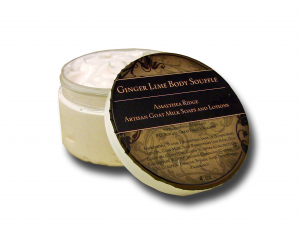
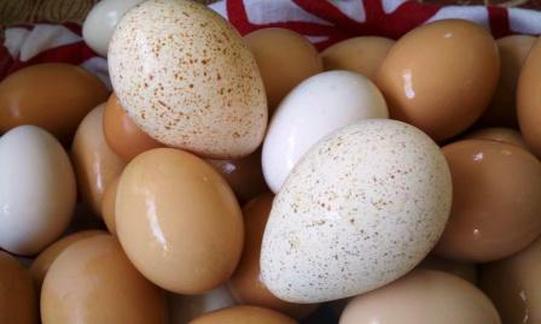
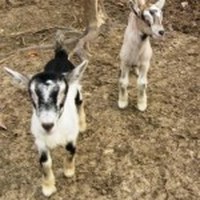
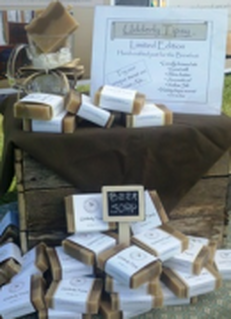
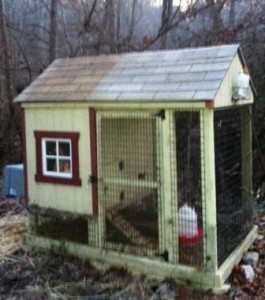
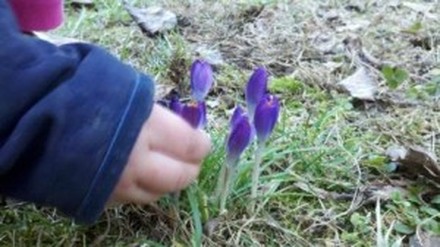
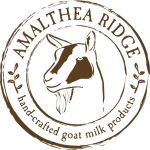



 RSS Feed
RSS Feed


